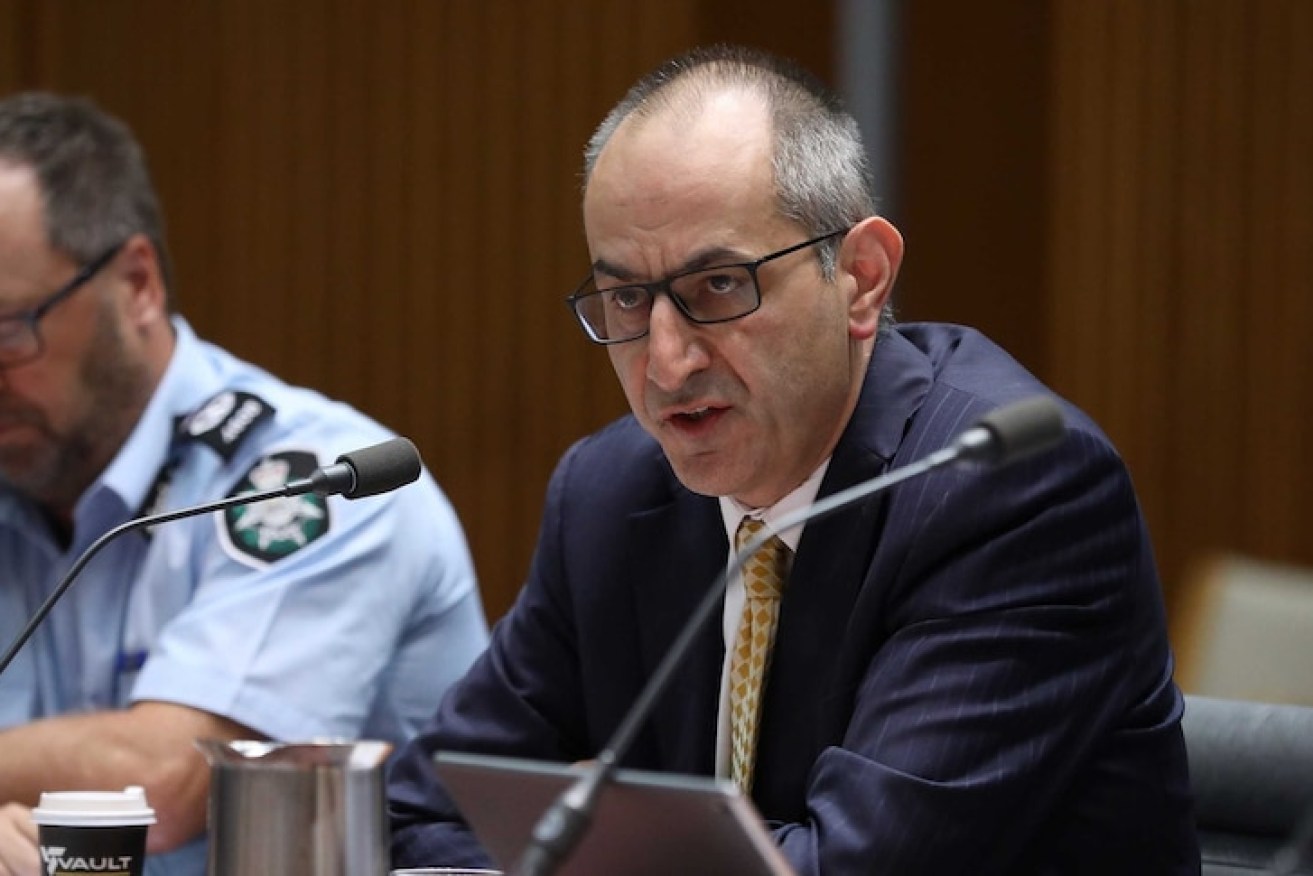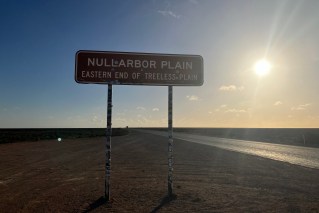Australia’s spy agencies a ‘rickety house of cards’ and a danger to us all
Civil liberties groups have expressed grave concerns about proposed changes to Australia’s national security laws and questioned why the spying and intelligence powers need to be beefed up.

Home Affairs Secretary Mike Pezzullo. (ABC image)
The concerns, along with scathing assessments of the intelligence community, are contained within a series of submissions to a Federal parliamentary committee which is scrutinising the proposed new laws.
There are also warnings that Australia will need to conduct the appropriate level of covert operations needed to respond to China’s “subversive tactics” and that the country’s intelligence agencies are moving into a new era resembling the early years of the Cold War.
The powerful Parliamentary Joint Committee on Intelligence and Security is reviewing the proposed new laws and has received a series of written submissions from spy agencies and civil rights groups.
In a brutal submission, Civil Liberties Australia describes Australia’s intelligence and security infrastructure as a “rickety house of cards” and a “mish-mash” cobbled together, posing a threat to Australia’s freedoms and civil liberties.
And CLA says the demands for increased powers and authority since the 9/11 attacks, have been “nothing short of extravagant”.
“The incidence of terrorism related activity in Australia has been low to non-existent since 9/11 and completely overshadowed by background crime in the community,” the submission says.
And it says that most terrorism related successes have stemmed from community reporting of suspicious activity, police responses to incidents already in progress and low-level capabilities of alleged terrorists.
Dr William Stoltz, the senior advisor for Public Policy at the ANU National Security College, warns in a submission that greater funding will be required for Australia’s intelligence community to incorporate new technologies and historic relationships with the private sector and the Australian public will need to evolve quickly.
The proposed new laws will allow intelligence agencies to produce intelligence on an Australian person without ministerial authorisation offshore where there is, or is likely to be, an imminent risk to the safety of an Australian person and the person would likely consent to the intelligence being collected if they were able to do so.
The laws would also enable security agencies to seek ministerial authorisation to produce intelligence on a class of Australians persons who are, or are likely to be, involved with a listed terrorist organisation.
In its submission to the committee, the NSW Council for Civil Liberties, says the definition for involvement is too broad and that non-financial support and advocacy are not defined.
“Would baking for a lamington drive or turning chippolatas at a sausage sizzle held by a local community group constitute ‘support’ for a listed organisation?’ the council asks.
“Given that there is no requirement for a person to knowingly provide support for a listed organisation, nor that they know the group they are supporting is a listed terrorist organisation, it is quite possible that an individual may innocently be providing such support, yet their conduct might be captured.”
The council warns the new laws have the potential to add to “an incremental erosion of the civil rights and freedoms of Australians”.
The changes would also extend the period for suspension of passports from 14 days to 28 days to allow sufficient time for ASIO to undertake all appropriate investigative activities to inform a security assessment where they suspect a person may leave Australia to engage in conduct, such as a terrorist act.
In its submission to the committee, the Department of Home Affairs says that extending the period of suspension “protects national security by allowing time for all appropriate investigative activities to be resolved” and for a properly considered security assessment to be made for the Minister to consider whether to cancel a person’s passport.
Home Affairs says the suggestion that the new bill would allow the Australian Signals Directorate to spy on people within Australia without a warrant if there is imminent risk to life, or in respect to domestic terror suspects, is not correct.
“The new emergency authorisation only operates in relation to an Australian person outside Australia,” the department’s submission says.
ASIO, Australia’s domestic spy agency, says in its submission that the doubling of passport suspension time is needed, based on operational experience that the current 14-day period is often insufficient for ASIO to undertake all the investigations it needs.
And ASIO says the passport suspension power has not been used during the Covid-19 pandemic, with closed international borders.
“However, we expect the re-opening of international borders to impact our threat environment, even if travel does not return to pre-Covid levels. ASIO assesses that religiously motivated violent extremists may seek to travel to conflict zones when borders reopen.
“It is also foreseeable that ideologically-motivated violent extremists may seek to travel to acquire military and paramilitary capability, as well as to establish and strengthen networks with offshore extremists.”












